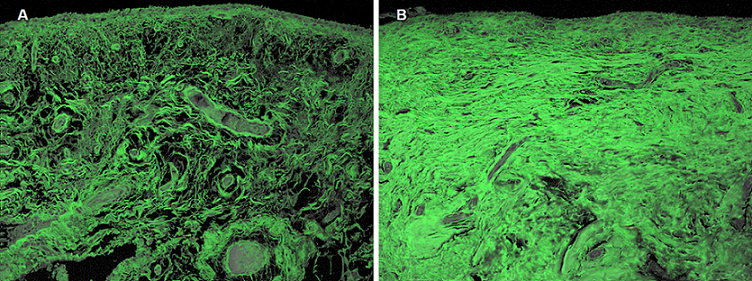The LSU Integrated Musculoskeletal Biobank (LIMB): Going to Extremes for ALL Patients

by Elizabeth Hofheinz, M.P.H., M.Ed.
The Department of Orthopaedic Surgery at Louisiana State University (LSU) Health – New Orleans is spearheading a new effort to investigate and rectify disparities in orthopaedic diseases and their treatment.
The LSU Integrated Musculoskeletal Biobank (LIMB), led by Vinod Dasa, M.D., Luis Marrero, Ph.D., Jessica Rivera, M.D., Ph.D., and Jennifer Simkin, Ph.D., is a repository that is focused on solutions to today’s most pressing questions about orthopaedic diseases, refining the standard of care, and improving the outcomes of intervention strategies that combat health care disparities. “We are constantly searching for novel approaches to better understand a broad range of orthopaedic conditions, therapies, and outcomes across the care continuum of our patient populations,” stated Dr. Dasa to OSN.
And LSU’s Department of Orthopaedic Surgery has substantial experience in this realm. In November 2015, they initiated a prospective study that captures demographic and patient reported outcome survey data from candidates for total knee arthroplasty (TKA) to store in an encrypted database (REDCap) for further study. Providing background, Dr. Marrero says, “Preliminary analyses of these data showed that women of black and white races constituted the majority of over 200 TKA consented patients. Statistics on this patient sample showed that black patients were significantly younger and had a higher body-mass index (BMI) than white patients.”
The researchers found that black patients reported significantly worse severity of knee problems in most Knee Injury and Osteoarthritis Outcome Score (KOOS) subscales: 1) symptoms, 2) pain, 3) activities of daily life, and 4) quality of life. These differences persisted even after adjusting for sex, age, and BMI. Thus, to conduct more in-depth analyses integrating demographic, clinical, social, and biological variables that may account for disparities in osteoarthritis symptomology, the LIMB was born.
Approved by the LSU Health Institutional Review Board to harvest biological samples with clinical data sets from 1000 consented patients undergoing TKA, the LIMB, has already secured sample sets from over 300 patients.
Dr. Marrero told OSN: “The LIMB is open to collaboration with industrial and academic institutions by supplying serum, synovial fluid, and/or tissue sample sets integrated with multiple clinical parameters and patient-reported surveys. Moreover, cell lines from patient synovium, articular cartilage, and periosteum with specified characteristics (e.g. diabetes, hypertension, high inflammation) can be isolated upon request with options for testing in-house. Studies using the banked material do not have to be limited to osteoarthritis.”
“It was very interesting when one of our medical students and I, while scoring tissues for synovitis by histopathology, documented a race-related trend in worse synovial fibrosis in black compared to white OA patients. This preliminary observation became the first to indicate disparities in OA between patient cohorts from our banked material and is now the central theme in one of our main projects, leading to abstracts accepted in major orthopaedic meetings and a manuscript currently under peer review.”
“Regardless of the pandemic-related challenges that we will continue to adjust to, we expect the LIMB to increase knee OA sample size, supplement characterization of sample sets (e.g. testing and grouping serum and synovial fluid sets for differential expression of specific cytokines and chemokines by multiplex and proteomics) and implementing standardized collection logistics to other orthopaedic surgical interventions/conditions related to trauma and benign musculoskeletal tumors.”





